Abstract
The use of at least two complementary online biomedical databases is generally considered critical for biomedical scientists seeking to keep fully abreast of recent research developments as well as to retrieve the highest number of relevant citations possible. Although the National Library of Medicine's MEDLINE is usually the database of choice, this paper illustrates the benefits of using another database, the Institute for Scientific Information's SciSearch, when conducting a biomedical information search. When a simple query about red wine consumption and coronary artery disease was posed simultaneously in both MEDLINE and SciSearch, a greater number of relevant citations were retrieved through SciSearch. This paper also provides suggestions for carrying out a comprehensive biomedical literature search in a rapid and efficient manner by using SciSearch in conjunction with MEDLINE.
Full text
PDF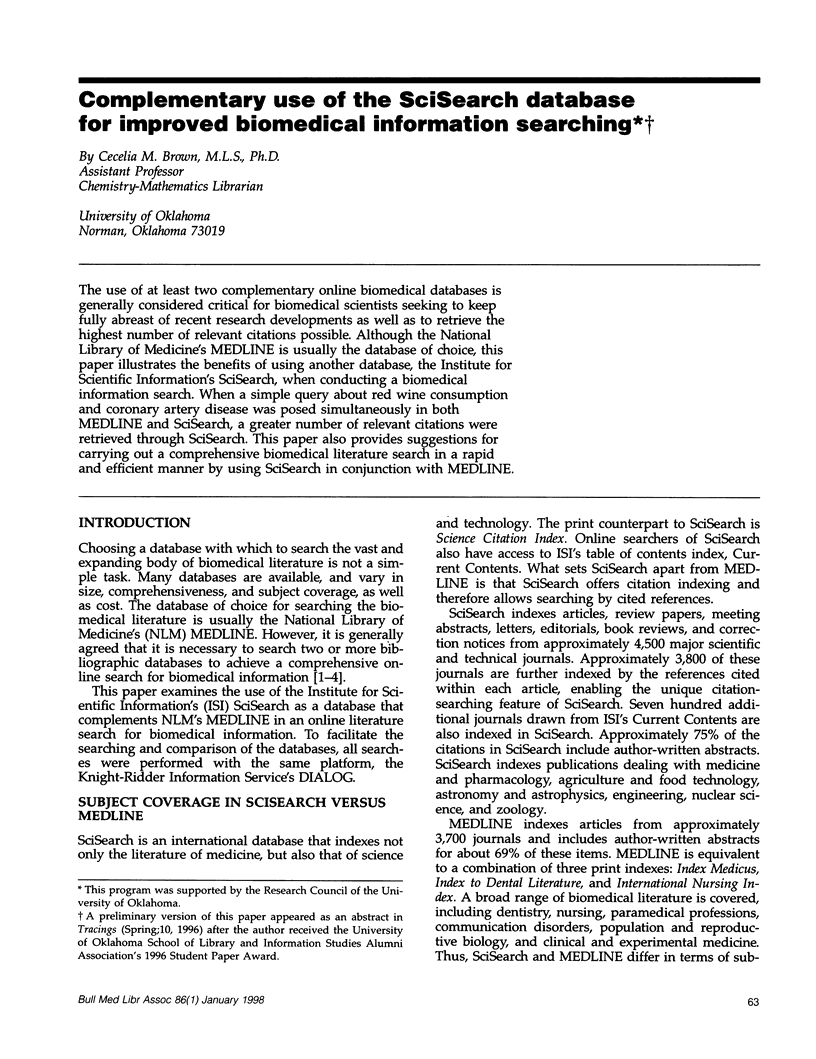
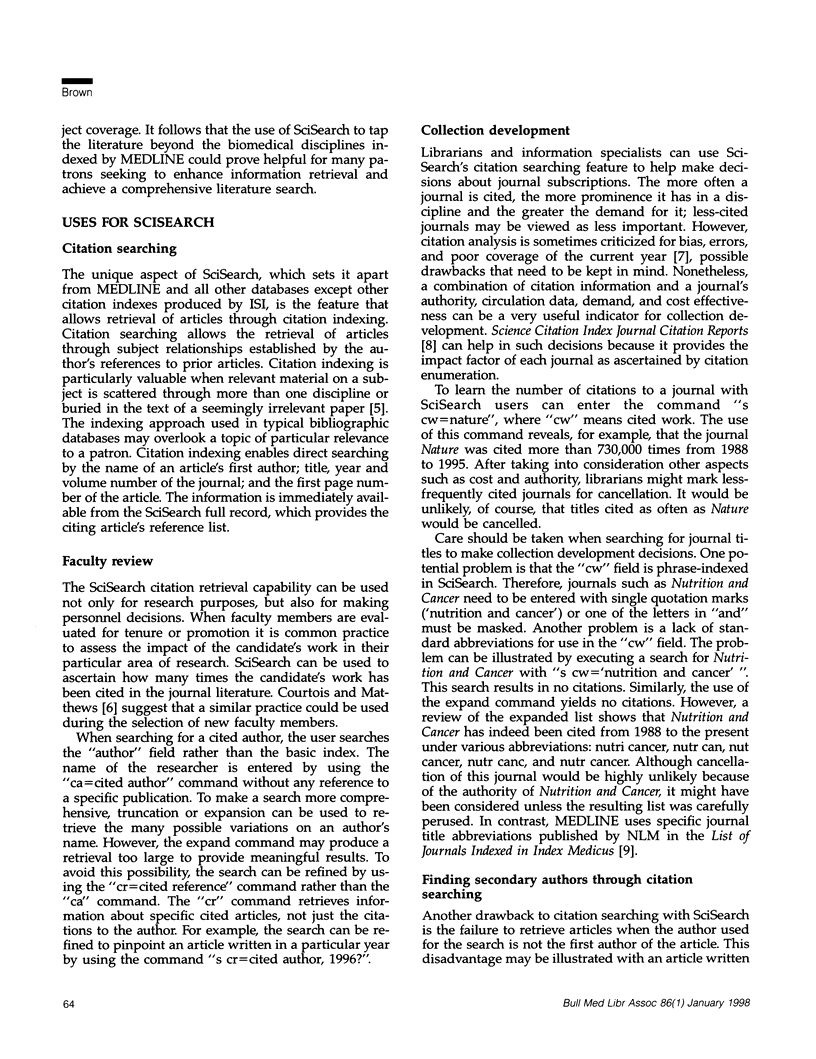
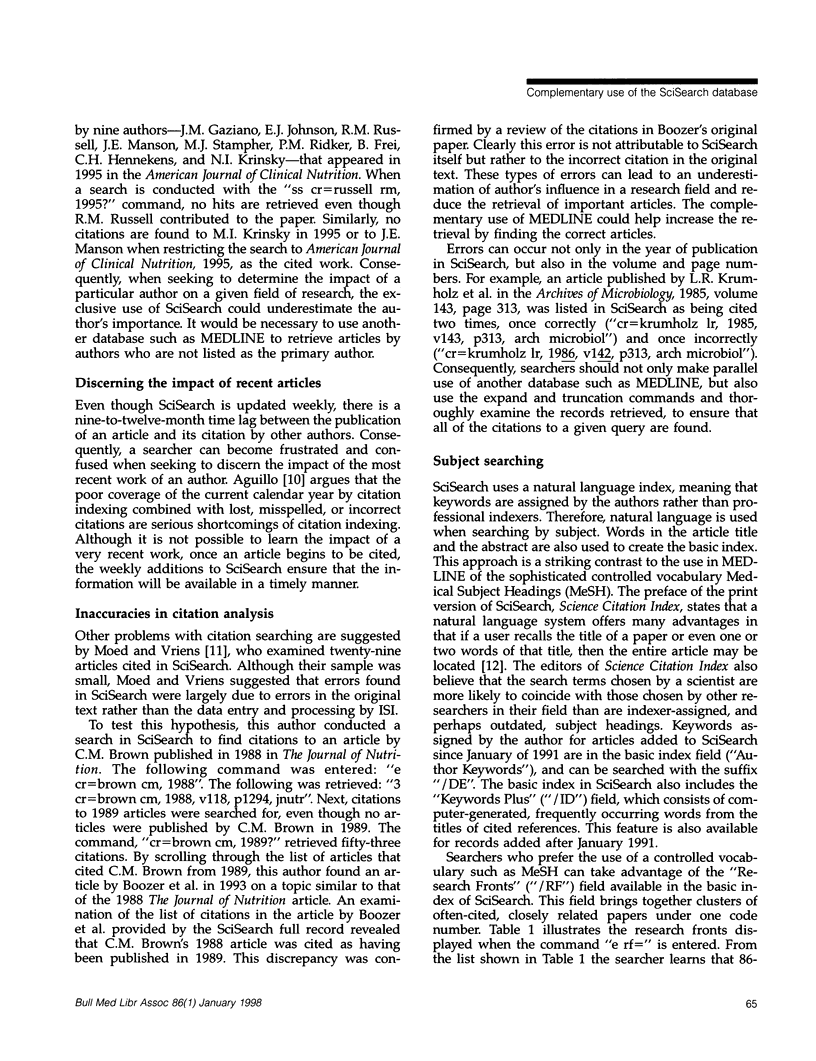
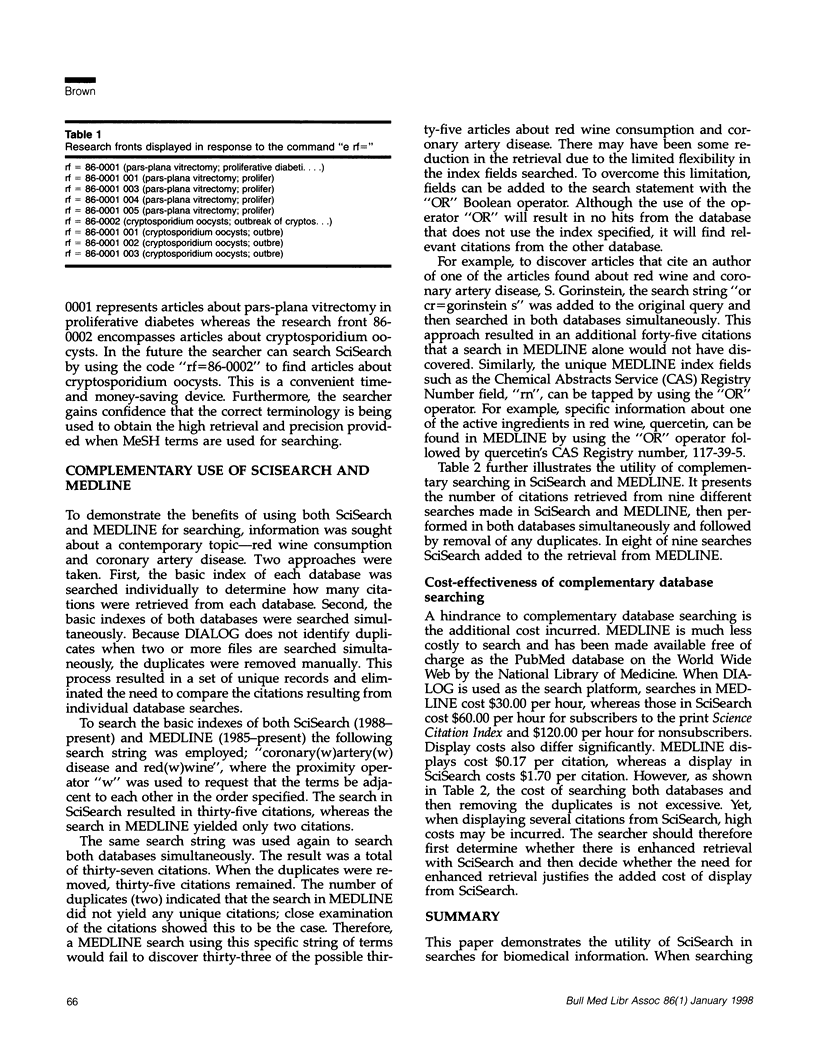
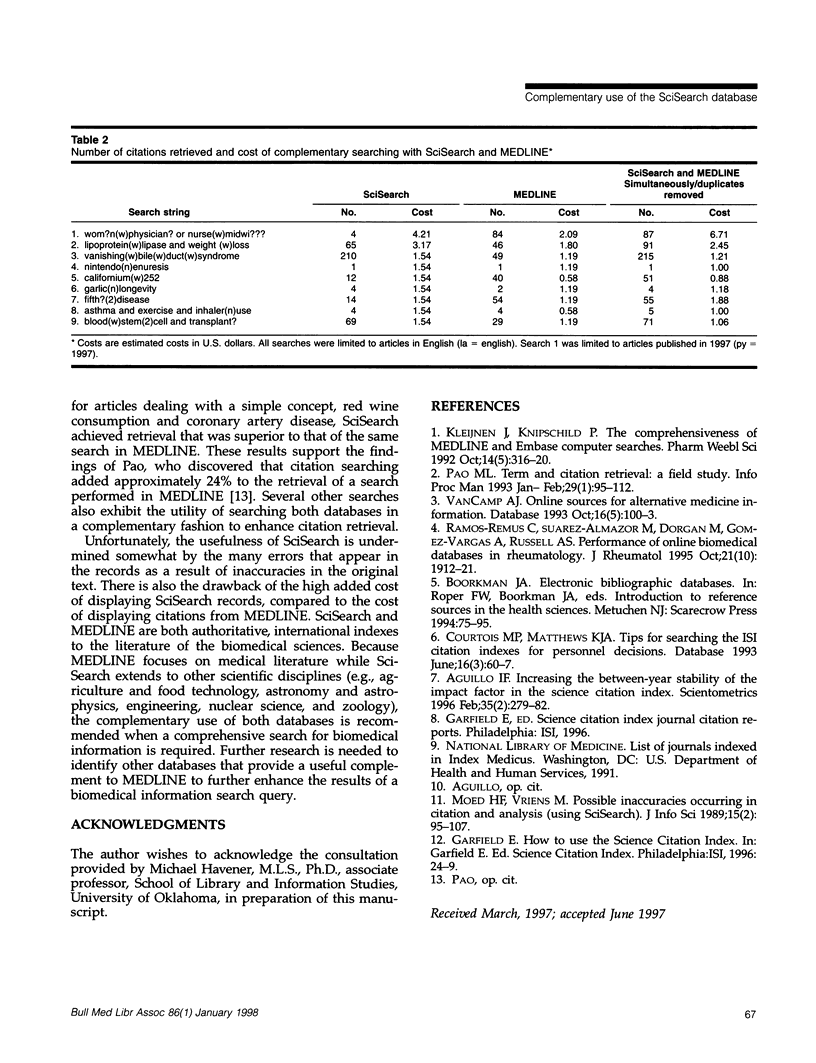
Selected References
These references are in PubMed. This may not be the complete list of references from this article.
- Kleijnen J., Knipschild P. The comprehensiveness of Medline and Embase computer searches. Searches for controlled trials of homoeopathy, ascorbic acid for common cold and ginkgo biloba for cerebral insufficiency and intermittent claudication. Pharm Weekbl Sci. 1992 Oct 16;14(5):316–320. doi: 10.1007/BF01977620. [DOI] [PubMed] [Google Scholar]
- Ramos-Remus C., Suarez-Almazor M., Dorgan M., Gomez-Vargas A., Russell A. S. Performance of online biomedical databases in rheumatology. J Rheumatol. 1994 Oct;21(10):1912–1921. [PubMed] [Google Scholar]



